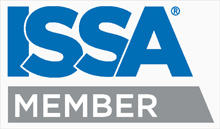Ebola: Infection & Control
What is Ebola?
Ebola is a virus that causes severe and often fatal illness in humans. It is most prevalent in Africa, especially near tropical rainforests, and is transmitted to humans through contact with infected wild animals. Human to human transmission occurs when infected bodily fluids, blood, or organs come into contact with a mucous membrane (eyes, nose, mouth, or open wound) of a healthy person.
Current Ebola Outbreak
Since the virus emerged this year, it has infected almost 2000 people, making it the largest Ebola outbreak in history. Part of the reason it spreads so quickly and drastically in African countries is the poor health care system in these parts of the world. Victims are usually those caring for people who have died of Ebola, such as family members or health care workers, that do not have access to proper protective equipment.
Ebola in the U.S.
Unlike developing countries, the United States is well-equipped to handle and contain an Ebola outbreak. Personal protective equipment such as gloves, protective eyewear, gowns, and masks are sufficient to protect healthcare workers from being infected. Because it is difficult to identify an Ebola infection early-on, it’s important that healthcare workers are wearing the necessary protective equipment whenever handling bodily fluids. Frequent cleaning and disinfecting of surfaces in healthcare facilities, schools, and other public places is another important part of infection control.
Environmental Cleaning
When a hospital or other healthcare facility has a patient infected with Ebola, the CDC recommends frequent disinfecting of all surfaces & fixtures with an EPA registered disinfectant to prevent environmental exposure. While no disinfectants have a specific claim for the Ebola virus, hospital-grade disinfectants are effective. Anyone entering the infected patient’s room should be wearing protective gloves, eye protection, a facemask and a gown. Health care professionals should use safe handling procedures whenever handling infected blood, urine, or other bodily fluids; additional protection, such as disposable shoe covers or leg coverings may be needed when performing tasks such as liquid waste disposal.
For more information about Environmental Cleaning Procedures specific to Ebola virus, or general information about the virus, visit the CDC Website.
Multi-Clean offers several hospital-grade, EPA registered disinfectants. Check out Multi-Clean’s Infection Control Webpage for products and disinfecting procedures.

